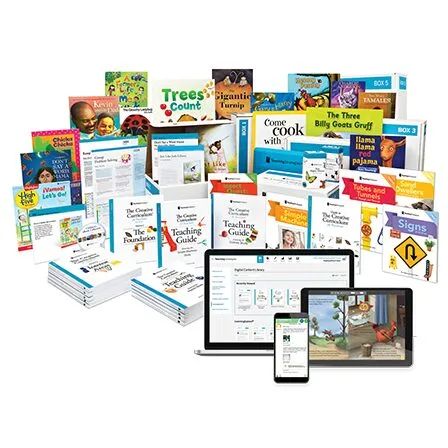Adaptive Curriculum and Its Role in Student Success


Consider the role adaptability plays in success of all kinds. In some ways, it’s everything. In biology, it is adaptability that allows for species to evolve and survive. In relationships, it is what allows for give and take, as situations that require compromise arise. In technology, it is the way one product works for many users. In athletic endeavors, change and adaptability are key in ensuring that muscles and skills become more perfected with each practice. Adaptability, then, encompasses various concepts including flexibility, active thinking, intuitiveness, creativity, knowledge of past and future scenarios, and, when it comes to humans, perhaps even empathy. The product of adaptability is a very individualized success.
The power of adaptability.
How then can we apply this principle to education, and how can it be useful? Of course, with computers, we have been able to harness the power of adaptability for the purpose of assessment for a long time. By utilizing computers when needed, standardized tests provide a testing experience that adapts to the ability of the test-taker. This tailored approach to testing offers students shorter and less frustrating testing experiences while ensuring reliability of results.
There are other places, however, where adaptability in education has even bigger implications. Adaptability in the process and delivery of instruction itself, which is essentially the curriculum, actually shapes how and what children learn. This has significant value as we think about the 21st century skills students need to be successful in work and life.
Student-driven learning.
Unlike computer-based assessment, adaptive curriculum requires real, live, in-the-moment interactions where knowledgeable teachers guide what and how children learn, based on what they know about their students and what students are ready to learn next. In short, it is the teacher adapting the curriculum, along with the classroom environment (often cited as the third teacher in the room), that allows the curriculum to be responsive to the students it is serving. An adaptive curriculum allows the student to drive his or her own learning while entrusting the teacher to make decisions. Of course, this makes sense when we consider that young children’s learning and interests are not always perfectly linear. To that end, teachers rely on learning standards and curricula that provide guides, materials, strategies, and content to ensure that children learn what is necessary, but they do so in a developmentally appropriate way with a diverse environment that is set up for exploration. This allows them teach the concepts and skills to children in playful ways both individually and in small groups, a method standing in opposition to more structured or scripted curriculum that sets not only the goals and material, but also groupings and the pace at which teachers should deliver instruction without considering what children are interested in or ready for.
Aside from creating engagement and interest for children, using adaptive curriculum is also the most reliable way to establish more equitable learning practices because the curriculum meets children where they are academically while also taking into account the need for materials and content to be positively and practically reflective of diversity. Finally, and perhaps most importantly, it’s important to acknowledge that while academic outcomes are critical, they are not the only thing that matters; it’s important to offer learning environments that build other skills too.
What are the features of an adaptive curriculum?
- A learning environment that offers opportunities for content to be reflective and culturally responsive to the children using the space (e.g., wall displays, books, and play materials that reflect all cultures in the classroom)
- Learning opportunities that foster critical thinking based on what children are interested in
- Opportunities for deep, meaningful conversations while teachers engage with children about topics that they know children are interested in
- Opportunities to master concepts across curricular content domains (integration of subjects)
- Opportunities for teachers to individualize learning approaches as children need based on what they know about children and where they expect children to go next
- Opportunities to apply content knowledge in practical ways and extend learning beyond a test or worksheet
- Opportunities to collaborate with other students to work on shared tasks
What are the benefits of adaptive curriculum for children?
- Opportunities to be engaged and interested in what they are learning
- Increased opportunities to develop social-emotional skills with peers and teachers
- Opportunities to develop problem-solving skills and persistence as they engage with materials and content
- Opportunities to master content as they are ready, creating a sense of confidence and success
- Opportunities to apply content in interdisciplinary ways
